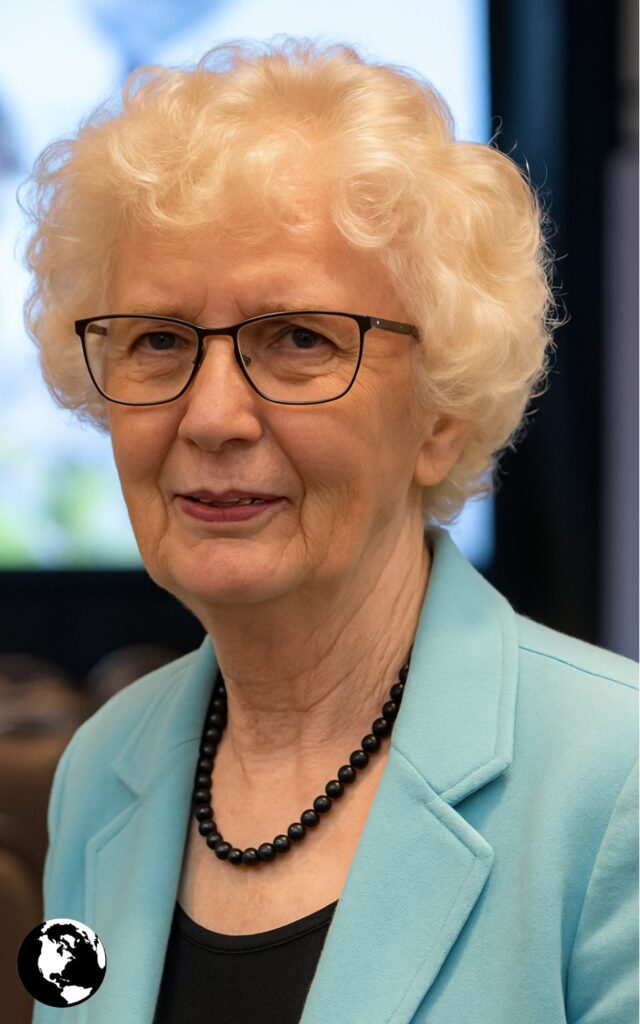Caroline Crowther, born in Australia, has become one of the most influential figures in maternal and perinatal health research. With a career spanning decades across Australia, New Zealand, the UK, and beyond, she has led groundbreaking clinical trials on gestational diabetes, preterm birth, and antenatal care. Today, Caroline Crowther is celebrated for translating evidence into practice, improving outcomes for mothers and babies worldwide. Her work, recognized with international awards, continues to shape medical guidelines and inspire future generations in healthcare.
Early Life and Academic Background
Caroline Crowther began her journey in medicine with a passion for improving health outcomes for women and children. Trained in obstetrics and gynecology, she developed her expertise through work in different countries including Australia, New Zealand, Zimbabwe, and the United Kingdom. These diverse experiences shaped her global outlook and strengthened her resolve to improve maternal health in both high-resource and low-resource settings.
Her academic positions eventually led her to become a Professor of Maternal and Perinatal Health, with a leading role at the Liggins Institute at the University of Auckland. This role has allowed her to design, conduct, and guide clinical research that directly informs medical practice.
Caroline Crowther’s Career and Research Leadership
The professional career of Caroline Crowther is defined by her dedication to rigorous evidence. She has led multi-center clinical trials, coordinated international collaborations, and authored hundreds of highly cited papers. Her focus has consistently been on conditions that carry the highest risks for mothers and babies.
Her expertise lies in several critical areas:
- Gestational Diabetes: Researching treatment options and their impact on maternal and fetal health.
- Preterm Birth: Investigating interventions like magnesium sulphate to protect the developing brain of premature infants.
- Pre-eclampsia: Conducting trials on preventive measures, including vitamins and other supplements.
- Antenatal Corticosteroids: Assessing the long-term effects of treatments such as betamethasone on children exposed in utero.
Through these studies, Caroline Crowther’s has demonstrated the profound impact that targeted, evidence-based interventions can have on reducing mortality, disability, and long-term complications.
Breakthrough Studies in Maternal and Perinatal Health
Several of her landmark studies have transformed clinical practice:
- Magnesium Sulphate for Neuroprotection
Caroline Crowther played a crucial role in establishing magnesium sulphate as a key treatment to reduce the risk of cerebral palsy in preterm infants. - Gestational Diabetes Management
Her work confirmed that controlling gestational diabetes improves outcomes for both mothers and babies, leading to guideline changes worldwide. - Antenatal Corticosteroid Follow-up Studies
Crowther also conducted follow-up research to assess how early interventions impact health outcomes years after birth, providing long-term insights that guide medical practice today.
These breakthroughs show why the name “caroline crowther” is associated with trust and innovation in maternal health.
Global Recognition and Awards
Caroline Crowther’s contributions have not gone unnoticed. She was elected a Fellow of the Royal Society of New Zealand in 2019 and, more recently, received the prestigious Gluckman Medal from the University of Auckland in 2025.
These awards highlight not only her academic excellence but also the real-world impact of her work. By influencing international guidelines, her research has shaped how doctors care for pregnant women and newborns across continents.
Caroline Crowther Today: Her Ongoing Contributions
When people search for “caroline crowther today,” they often want to know what she is working on now. Currently, she continues to lead research at the University of Auckland, focusing on gaps in maternal and perinatal health practices. Her projects emphasize translating clinical evidence into healthcare systems, ensuring that discoveries reach the people who need them most.
She also mentors younger researchers, passing on her knowledge and building the next generation of leaders in obstetrics and perinatal medicine. Caroline Crowther today is as active and influential as ever, balancing her roles as a researcher, educator, and policy advisor.
Understanding the Public Curiosity: What Happened to Caroline Crowther?
Alongside her professional reputation, Caroline Crowther is also known in the public eye for her personal connection to the late Phil Lynott, the frontman of Thin Lizzy. She was once married to him, which is why searches such as “phil lynott wife caroline crowther” or “caroline crowther lynott now” often appear.
Some people even search “is caroline crowther still alive” or “what happened to caroline crowther.” To be clear: Caroline Crowther is very much alive and continues to make significant contributions to global health research. Her personal story intersects with music history through Lynott, but her enduring legacy is in medicine and science.
Legacy and Influence on Future Generations
The impact of Caroline Crowther goes beyond her own career. By proving the value of robust clinical trials, she has set new standards for maternal and perinatal health research. Her legacy includes:
- Influencing international clinical guidelines.
- Improving outcomes for millions of mothers and babies worldwide.
- Inspiring future researchers through mentorship.
Her story demonstrates that science, when combined with compassion and persistence, can change lives across generations.
Conclusion
Caroline Crowther is more than just a respected academic—she is a global leader in maternal and perinatal health. From her groundbreaking work in gestational diabetes and preterm birth to her role as an influential educator and mentor, her career reflects dedication and impact.
For those searching “caroline crowther today” or wondering “what happened to caroline crowther,” the answer is clear: she remains at the forefront of research, shaping the future of maternal and child health. Her connection to Phil Lynott may draw some public attention, but her true legacy lies in saving lives and improving outcomes for families worldwide.

